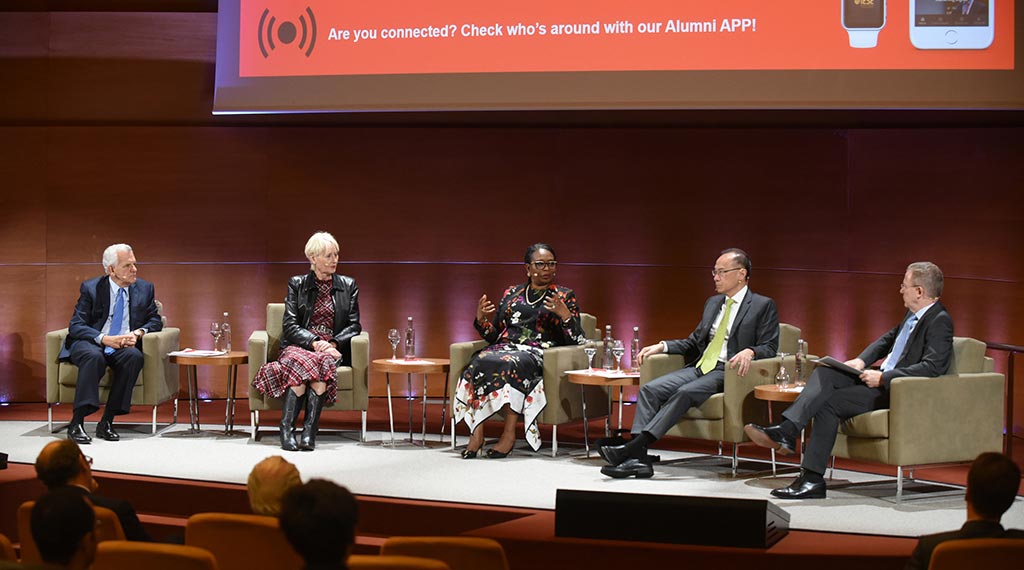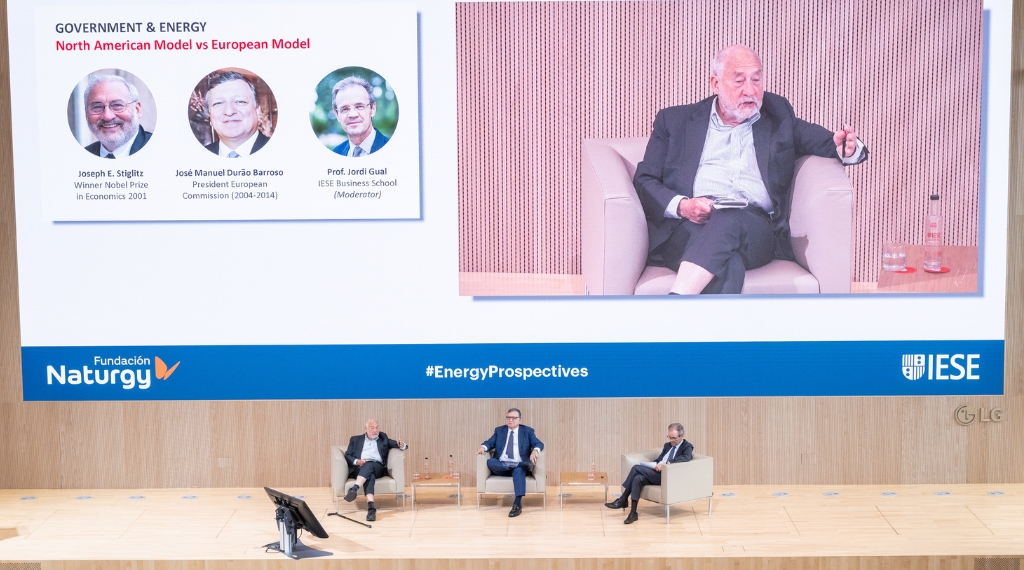
Stories
How business should respond to political turmoil
IESE’s International Advisory Board talks about leadership in volatile times during Barcelona visit
April 29, 2019
Paul Polman began his recent talk at IESE by referencing Charles Dickens’ famous line about living through the best and the worst of times.
“That’s where we are,” said Polman, who for 10 years led Unilever before stepping down in January. On the one hand, 217,000 people are lifted out of poverty each day; economies, by historical measures, are booming across the globe; and technology has brought previously unimaginable access to information.
On the other hand, “the way we’ve lifted people out of poverty is not sustainable,” Polman said, and is tied to the past decade’s general sense of crisis Ø first financial, then economic and now political. The culprits include overconsumption, a reliance on debt and a system that leaves far too many people behind, resulting in untenable income inequality.
“There’s something wrong,” Polman said during his talk titled What Does it Mean to Lead a Multi-Stakeholder Company? The Case of Unilever.
“The traditional idea of the fruits of globalization trickling down simply hasn’t happened,” said Denise Kingsmill, a lawyer and member of the advisory board at Inditex, during a later panel on geopolitics and the CEO. Also on the panel were Stanley Motta of Motta Internacional, Ibukun Awosika of First Bank of Nigeria, Kerry Holdings’ George Yeo and IESE’s Eric Weber.
Members of IESE’s International Advisory Board (IAB) were on the Barcelona campus for their annual meeting, holding talks with alumni and students. The IAB, which is comprised of prominent global business and public sector leaders, also welcomed its newest member: Juvencio Maeztu, Global CFO of IKEA Group and a IESE MBA.
“Businesses cannot be bystanders”
Polman argued that current governmental disarray compels business leaders to practice better social responsibility. “It’s during an enormous political vacuum like today’s where the private sector steps in,” he said. “Businesses cannot be bystanders to the social systems that give them life in the first place.
“If you’re in a position to act, you have to act. If not, you become guilty of the crime.”
Moderator Jordi Canals in introducing Polman called him one of the most significant CEOs of our time, and “a source for good.” Unilever under his leadership became an admired example of how to start the process of transformation (as analyzed in a recent IESE cast study) to corporate purposefulness from more conventional, profit-driven business missions.
Polman thinks executives can become active participants in bettering society by dismantling the “underlying boundaries” that give short shrift to social and natural capital. (The sustainability-minded businessman spoke at length about the cataclysmic perils of climate change, calling it “the greatest intergenerational crime we’ve ever committed.”)
As an example, Unilever early into Polman’s tenure as chief implemented a radical Sustainable Living Plan, whose goals included helping 1 billion people improve their health and hygiene, doubling the proportion of the Unilever portfolio meeting the highest nutritional standards and halving greenhouse gas impact and water consumption.
Crucially, the plan integrated these ambitions into company’s everyday business practices Ø and made the consumer goods behemoth a multi-stakeholder company.
Purpose and profits both
What’s really needed, Polman said, is the “creation of a circular or regenerative rather than linear economy.” He prefaced his next statement by saying many didn’t believe it.
“In 10 years I never looked at [Unilever’s] share price,” he said. “I was made aware of it by other people. But it didn’t interest me. And if it did, I think I’d have made the wrong decisions.”
Still, purpose-driven business doesn’t, and indeed can’t, preclude success by more traditional business measures.
“Executives need to be driven by moral value and purpose, but they also need to make sure they get results,” Polman said. “If the business performs, fewer people have their guns out.”
We are living through an era of tumult and technology-driven polarization. Yet Polman’s basic premise remains that despite certain contemporary appearances to the contrary “there aren’t bad people in the world. We have a few rotten apples. But the collective essence is good. And we must achieve these results collectively.”


